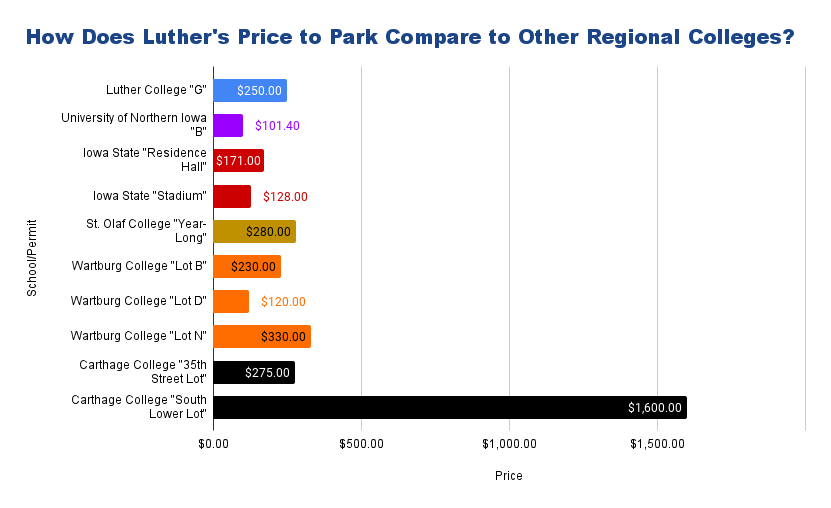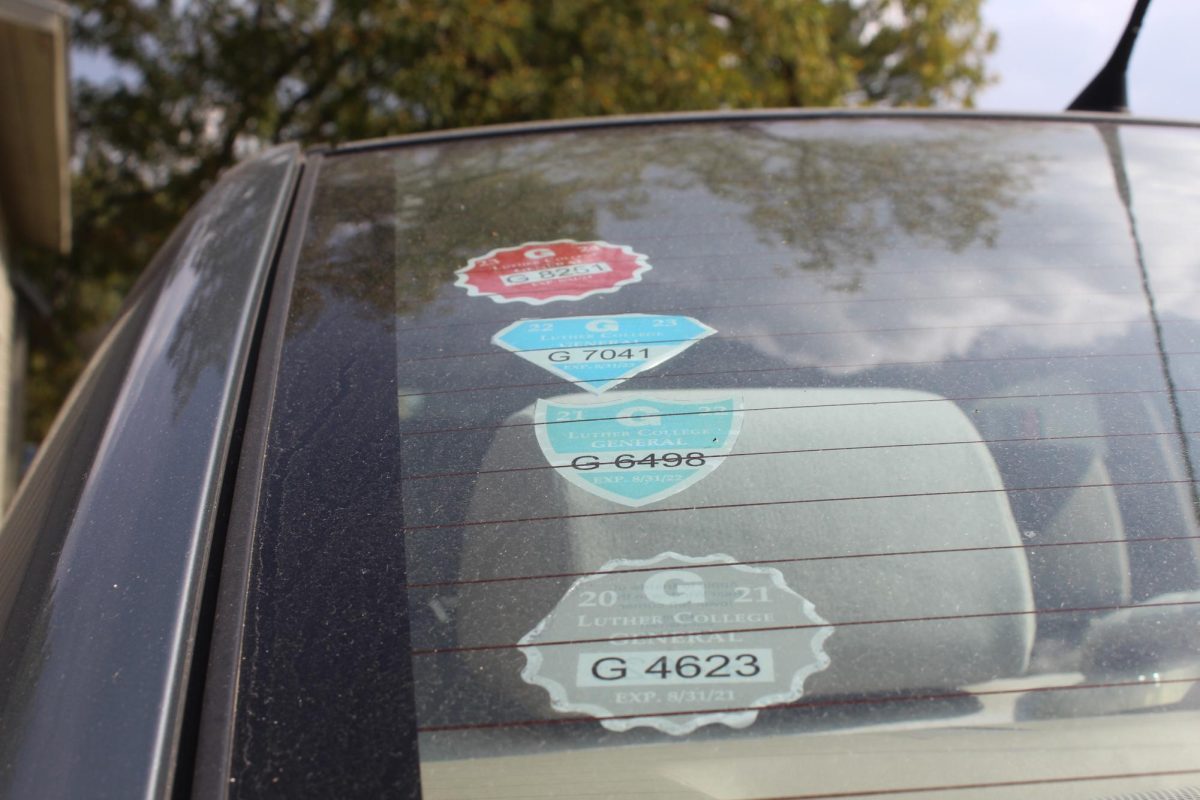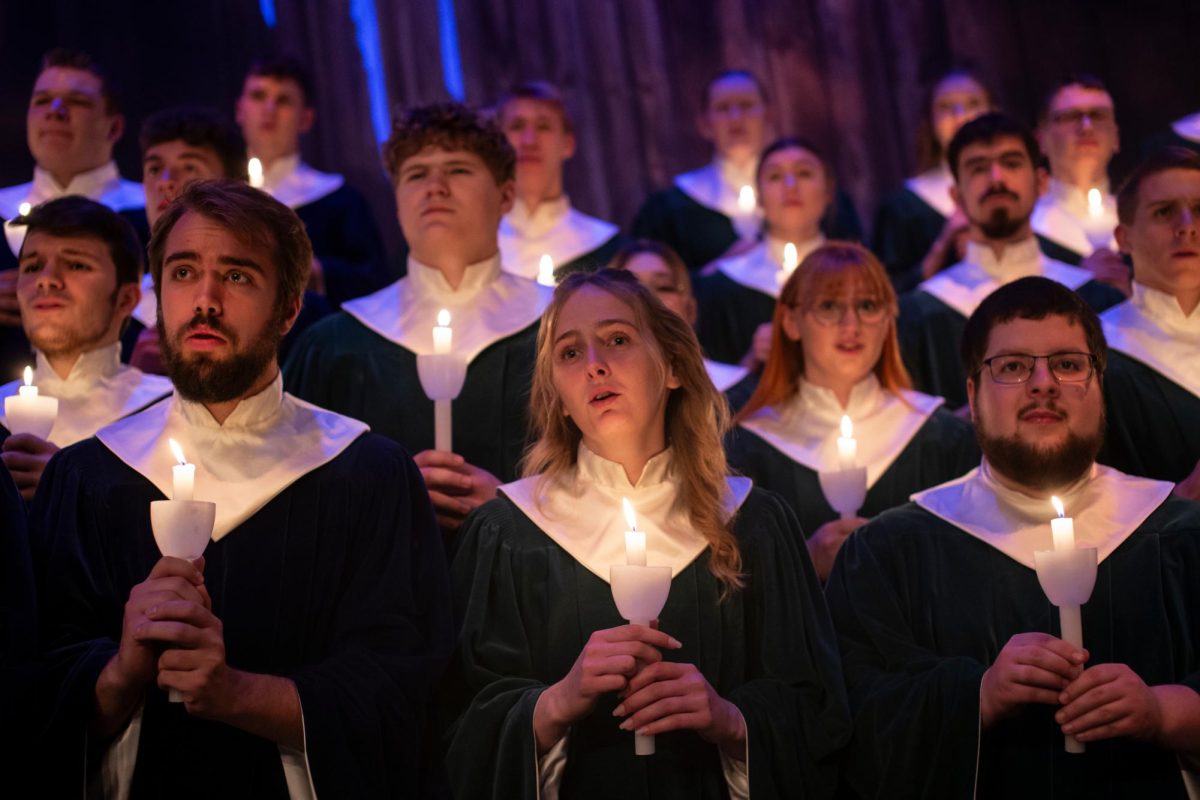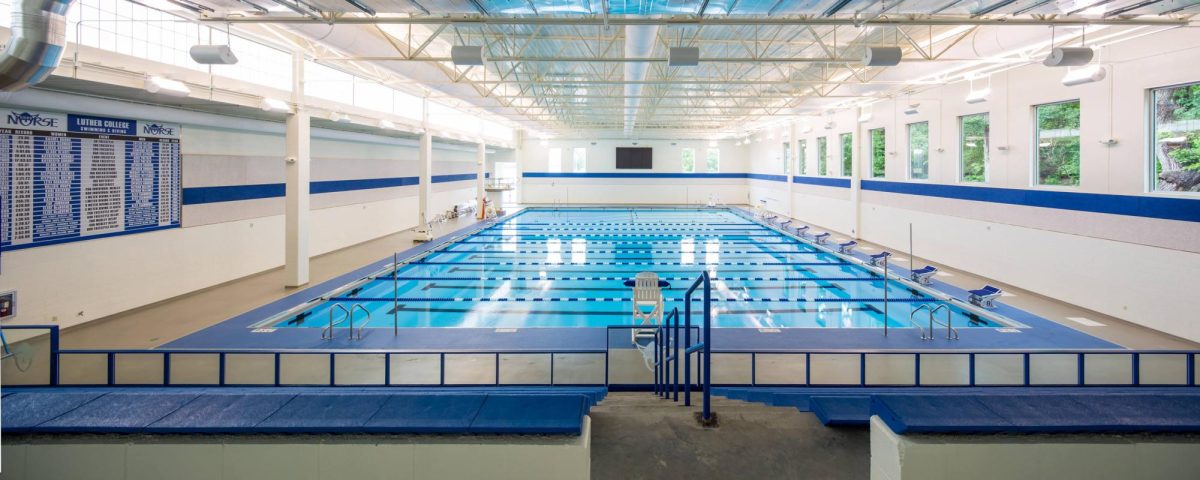Spending money on a parking pass is on my bottom five Luther College moments. While benefits exist (I hope), they exist despite the fact that most of the student body quietly or vehemently hates buying one. Why? Because, in short, they’re the most boring way to spend 250 bucks.
My housemates and I have recently had our annual discussion — that’s a polite term, rant is more accurate — about the state of parking permits at Luther. Now, it should be no surprise to you that parking permits exist and that 250 of your hard-earned dollars go toward one every year, unless you tempt fate and choose to hide your car from campus security. My housemates and I are all juniors and seniors, and every year our annoyance at purchasing a permit returns. This year, with the increase in the price of permits and the price of tickets, it had an added edge. “It’s the principle of the thing,” we say, right before we put our tails between our legs, suck up our pride, and buy another parking pass.
The “gotcha” cost of parking passes aside, what I really wanted to know was if Luther was on par with other colleges in the region. While I understand that some of the permit money goes toward paying for snow removal and other costs of keeping a parking lot (not that the Regents lot is a particularly great example of a “well-kept” parking lot), looking at the costs of several colleges and universities around us became quite revealing about the general nature of parking on college campuses.
Before we begin, a couple caveats: I looked only at year-long passes for resident students as that is what a majority of Luther students end up purchasing. Also, while the convenience of certain parking lots certainly might factor into how students feel about paying for parking (think if you had to pay full price for a permit while living in Olson Hall, but only got to park in Regents), obviously, I can only give my own opinion as to what convenience looks like. Finally, this quick survey includes several campuses with buses or other campus transportation, which can vastly redefine a person’s parking experience or even eliminate their need for a permit in the first place — this could potentially throw Luther’s own problems for non-driving students into sharp relief.

We’ll start with two bigger universities: University of Northern Iowa (UNI) and Iowa State University (ISU). UNI sets their B permit at $101.40 (they really need those 40 cents), and the parking lots seem to be of varying distance away from residence halls.UNI does not have a bus system, but the city of Cedar Falls does, which might make travel for non-drivers possible even if it isn’t as in-depth as other larger campuses. Overall, UNI offers the most value to convenience of any college or university that I looked at.
ISU sets their prices at $171 for a Residence Hall Permit and $128 for a Stadium permit. The stadium permit is not particularly convenient, at least as far as I can tell, and a student has to move their car before game days. The Residence hall permit seems a little more convenient, or at least that students don’t have to move their vehicles. However, ISU has its own bus system, making it possible for non-driving students to get around fairly easily.
Parking varies at smaller colleges as well, like at St. Olaf, Wartburg and Carthage. St. Olaf sets their price at $280 for year-long permits, although it seems that a person might be able to save $20 by opting for a semester permit instead. The parking lots marked for students seem more or less convenient, a walk comparable to the walk from Dieseth/Miller to the Regents lot in some cases, but it seems that the layout of the campus is such that a St. Olaf student might have to end up walking further. Northfield’s busing system seems well enough equipped, and the local bus route is free to use with a St. Olaf I.D.
Next, Wartburg. Wartburg ended up being more convoluted than I had anticipated, but in sum, here are the prices: $120 (D Lot is quite inconvenient, think Jewel Barn parking as the Luther equivalent), $230 (B Lot is closer, but still inconvenient), $245 (Lot C is still inconvenient, but worse, is $15 more for being approximately the same distance as the $230 permit), and $330 (N Lot is the most convenient for nearly all students). Wartburg also does not seem to have a particularly good busing system for non-driving students.
Finally, the joke of college parking permits: Carthage College. For the worst possible parking lots, both of which are at least over a mile away from campus and have a bus shuttle for students to get to their cars: $275. For the furthest parking lot within campus limits: $650. Want to go crazy? Let’s go crazy. For a closer but still very inconvenient walk to the parking lot, you’re paying $1,100. And for a grand total of 1,600 dollars, you can get what we Luther students would deem an “ok” parking spot. Thank you to Meg Sessions (‘24) for pointing out this terrifyingly bad parking permit situation, and on the off chance that a Carthage College student is reading this: you need to strike.
So, what have I learned from this summary, ignoring the outlier of Carthage? Luther is comparable to other colleges of its own size in terms of pricing of parking passes, and is, in most cases, competing with those prices or beating them. However, all of this raises the question, one I don’t have the answer to: for what are we paying? I don’t blame colleges for asking for money in order to afford all the things that go into managing a college parking lot. But with all the money that Luther is getting from students buying permits, why are there still so many pot-holes and unresolved issues in the parking lots themselves? Luther doesn’t need — quick approximate math: enrolled students at Luther (1,610) multiplied by $250 — $402,500 dollars to make the parking lots better every year, and if they did, the lots would be in better condition, right? I don’t claim to have the answers, and I have, for four years of my Luther career, bought a parking pass. But it doesn’t discount the fact that $250, while not overtly much in the scheme of college costs, is a thorn in the side of students and one heck of a rip-off.







